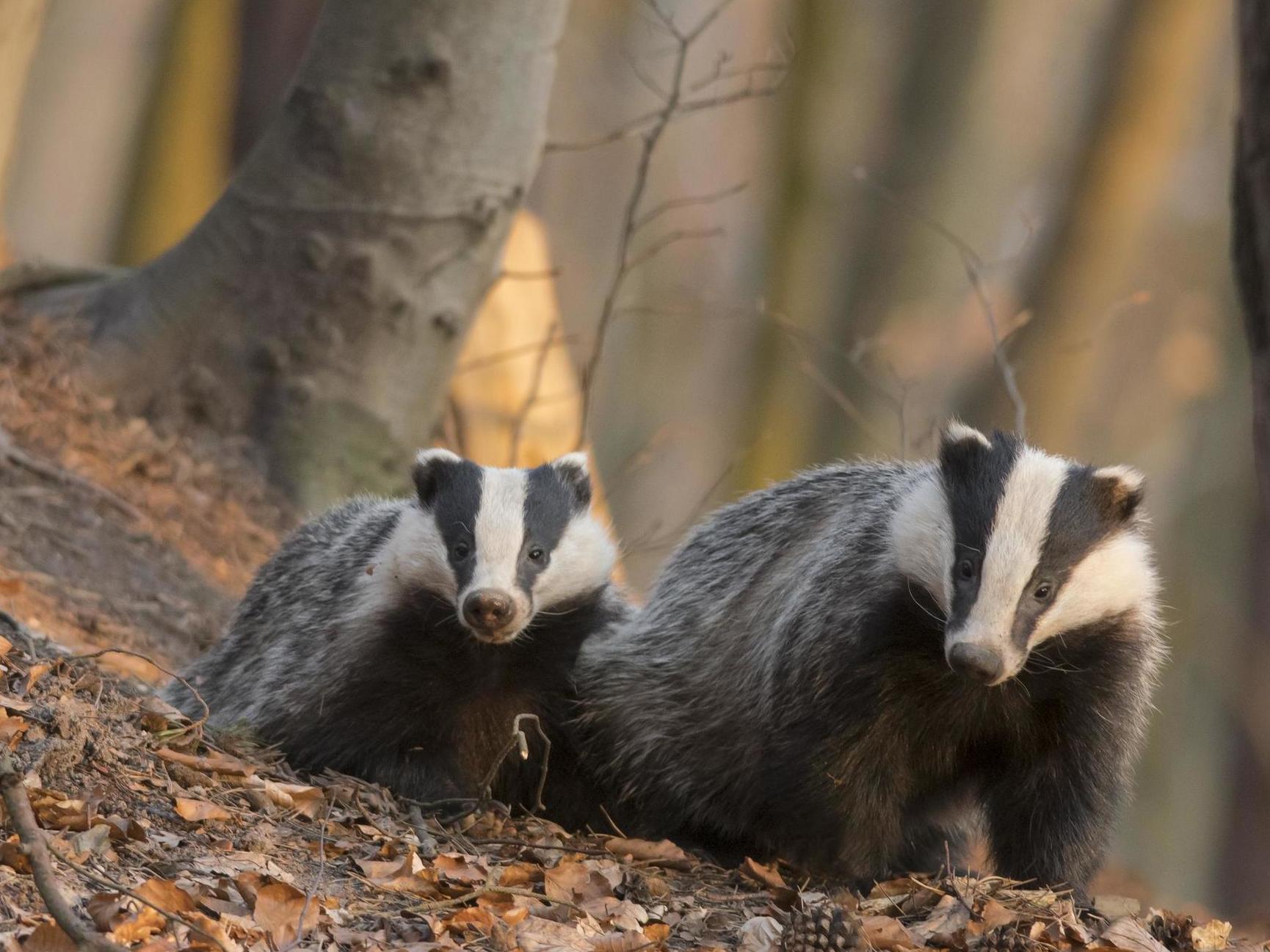Badger cull: Taxpayers fund £56,000 handout to cull company after vaccinations go ahead – but inoculated animals may still be shot
Exclusive: Derbyshire firm reimbursed for expenses after plan changed following reported intervention of Carrie Symonds, Jane Dalton writes


Taxpayers paid more than £56,000 in compensation to a badger culling company after a cull was cancelled in favour of mass vaccination in the area.
But now even inoculated animals will probably be shot under a huge expansion of the cull that for the first time takes in Derbyshire – the number-one county for vaccination of the legally protected species.
The expansion is despite the government announcing in March that culling would be phased out in favour of a vaccination programme.
Environment officials handed £56,596 last autumn to the local firm, a Freedom of Information request has revealed. It was an “ex gratia” payment after the Derbyshire cull was cancelled, reportedly following the intervention of Carrie Symonds, Boris Johnson’s fiancée.
It is believed the payment has raised the proportion that taxpayers are footing in Derbyshire to above that of any other cull area in England, based on government estimates of costs for a four-year cull cycle.
Derbyshire, which is in the TB edge area where the government has been encouraging badger vaccination, has the biggest badger vaccination project in the country.
The National Farmers Union challenged the government’s decision to cancel the Derbyshire cull licence in the High Court but its case was dismissed.
The government reimbursed the cull company for its expenses in applying to carry out the cull.
But new leaked documents show that Derbyshire is included in a tranche of new licences, which means badgers already vaccinated are likely to be killed.
Badgers spread tuberculosis to cows, and culling is the government’s main strategy to eradicate the disease in dairy herds. Thousands of cows are put down each year after testing positive.
Before culling began the Department for Environment, Food and Rural Affairs (Defra) said it expected the farming industry to bear the costs of badger culling.
But government figures show that the proportion of the bill paid by farmers for each four-year cull has fallen from £865,000 in 2016 to £130,000 last year, with taxpayers now making up the rest – £500,000 in each area over four years.
Defra says each new cull area is expected to deliver net benefits of up to £2.2m, and argues the agri-food sector contributes billions of pounds to the economy each year.
The newly revealed list of 54 culling areas for this year could result in numbers of badgers being killed doubling this year compared with last year, conservationists say.
Up to 65,000 badgers may be killed in areas from Cornwall to Cumbria in the coming months, according to the Badger Trust. Last year, 35,034 badgers were shot, bringing the total number killed since the cull was announced in 2011 to 102,349.
The leaked list, which the government has refused to confirm, identifies 11 new zones, including the counties of Derbyshire, Oxfordshire, Warwickshire, Shropshire and Leicestershire.
“Derbyshire have a huge and successful vaccination programme in place,” said one wildlife lover.
Derbyshire Wildlife Trust, which coordinates mass vaccination, tweeted: “We are horrified at the possibility of the county being included in this year’s badger cull.”
Julia Hammett, chair of Oxfordshire Badger Group, which also vaccinates, said the “no-kill alternative” was offered free by the group to landowners.
The document also suggested culling would continue – and potentially expand significantly – in places such as Devon, Cornwall, Herefordshire, Somerset, Wiltshire, Cheshire, Cumbria and Staffordshire.
Dominic Dyer, chief executive of the Badger Trust, said the public cost of the policy was estimated to exceed £70m this year. “Yet the government is still to produce any reliable evidence that the mass destruction of badgers is having any significant impact on lowering bovine TB in cattle in or around the cull zones.”
“Every badger in England could be killed, yet bovine TB will remain in cattle herds due to deficiencies in TB testing and poor cattle movement and biosecurity controls,” he said.
“It’s time the government followed through on its public commitment to find an exit strategy from the cruel, costly and ineffective badger cull.”
A Defra spokesperson declined to comment on the £56,596 payout but said: “Bovine TB remains the greatest animal health threat to the UK, costing taxpayers over £100m every year, as well as causing devastation and distress for farmers and rural communities.
“There is no single measure that will provide an easy answer to beating the disease and we are pursuing a range of interventions to eradicate it by 2038, including tighter cattle movement controls, regular testing and vaccinations.”
The government plans to publish an update to its bovine tuberculosis strategy in the autumn.
Join our commenting forum
Join thought-provoking conversations, follow other Independent readers and see their replies
Comments